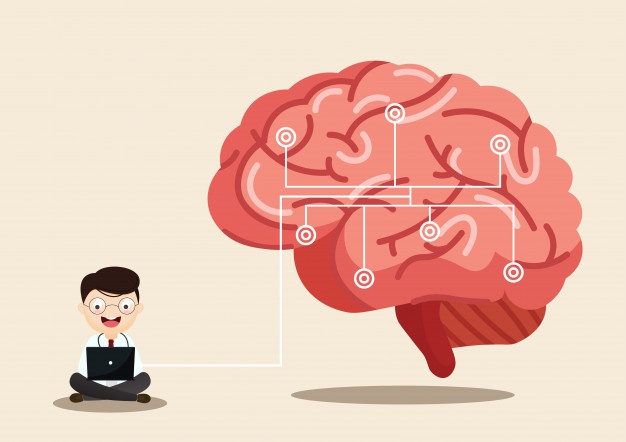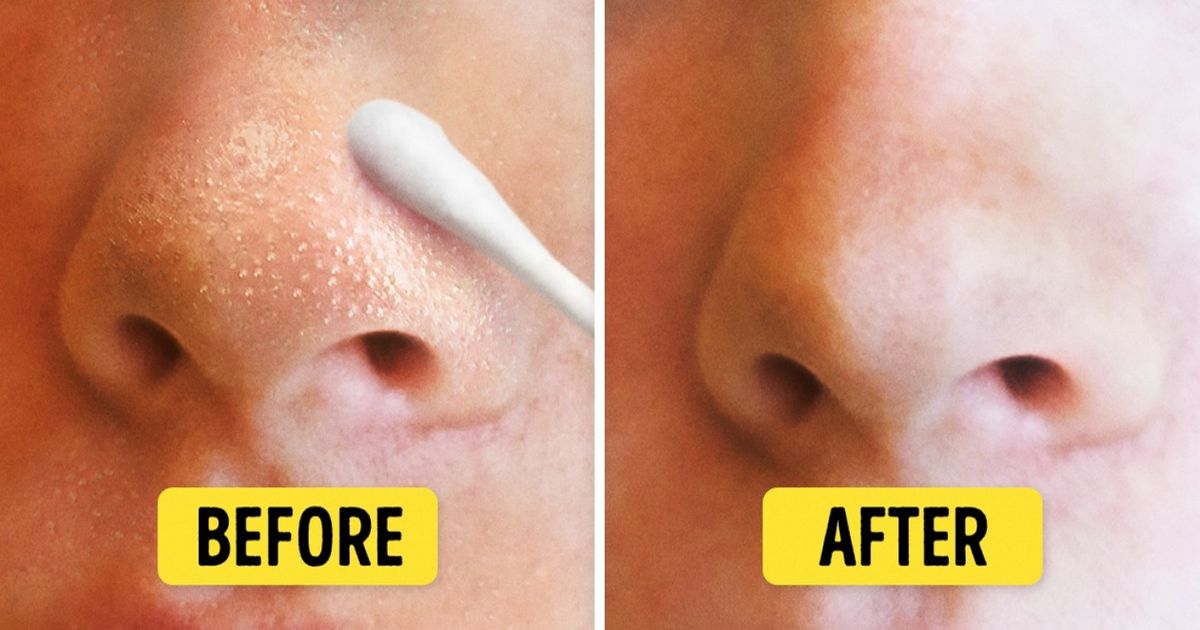A healthy brain is the cornerstone of a productive, fulfilling life. In today’s fast-paced world, nurturing your cognitive function and mental clarity is more important than ever. From improving memory to boosting overall mental health, adopting effective brain-boosting habits can help you stay sharp, reduce the risk of cognitive decline, and enhance your quality of life. In this article, we reveal the 6 Habits of Highly Healthy Brains in Order of Importance—each backed by expert advice and credible research from leading institutions like the Mayo Clinic, Healthline, and WebMD.
By integrating these habits into your daily routine, you can improve your brain health, optimize your cognitive performance, and ensure long-term mental vitality. Let’s explore each habit in detail and discover how to transform your daily life with practical, science-backed strategies.
1. Prioritize Regular Physical Exercise for Brain Health
Physical exercise is not just about building muscles or burning calories—it’s a powerful tool for enhancing brain function. Studies show that regular aerobic exercise increases blood flow to the brain, promotes the growth of new neurons, and improves overall cognitive performance.
How Exercise Boosts Cognitive Function
- Enhanced Blood Flow: Engaging in moderate to vigorous exercise increases the oxygen and nutrient supply to the brain, which helps in the repair and maintenance of brain cells.
- Neurogenesis: Exercise stimulates the production of brain-derived neurotrophic factor (BDNF), a protein crucial for the growth of new neurons and synapses.
- Stress Reduction: Physical activity reduces stress hormones like cortisol, thereby minimizing their negative impact on brain structure and function.
Recommended Activities for a Healthy Brain
Yoga and Pilates: These mind-body exercises not only improve physical flexibility but also reduce stress and promote mental clarity.
Aerobic Workouts: Activities like brisk walking, running, cycling, or swimming are highly effective for boosting cognitive function.
Strength Training: Lifting weights or engaging in resistance exercises also contributes to overall brain health by supporting hormonal balance.

2. Maintain a Brain-Boosting, Nutrient-Rich Diet
Nutrition plays a pivotal role in brain health. What you eat can have a direct impact on your cognitive abilities and overall mental clarity. A balanced diet rich in antioxidants, omega-3 fatty acids, vitamins, and minerals is essential for keeping your brain functioning at its best.
Key Nutrients for Cognitive Health
- Omega-3 Fatty Acids: Found in fatty fish (like salmon and mackerel), walnuts, and flaxseeds, omega-3s are vital for maintaining healthy brain cell membranes and reducing inflammation.
- Antioxidants: Foods rich in antioxidants, such as berries, dark leafy greens, and nuts, help combat oxidative stress—a major contributor to cognitive decline.
- B Vitamins: Vitamins B6, B12, and folic acid play a crucial role in maintaining proper brain function and preventing memory loss.
- Polyphenols: These compounds, found in foods like green tea, dark chocolate, and red wine (in moderation), support neuroprotection and improve blood flow to the brain.
Brain-Boosting Meal Ideas
- Breakfast: Start your day with a smoothie packed with spinach, berries, and a spoonful of flaxseeds.
- Lunch: Enjoy a salad with mixed greens, walnuts, avocado, and a lean protein source like grilled chicken.
- Dinner: Opt for a serving of fatty fish with steamed vegetables and quinoa for a balanced, nutrient-dense meal.
For more detailed dietary guidelines and research-backed insights, check out nutrition advice on Healthline and Harvard Health Publishing.

3. Prioritize Quality Sleep for Memory Consolidation
Sleep is not a luxury—it’s a necessity for a healthy brain. During sleep, the brain processes and consolidates memories, clears out toxins, and repairs neural pathways. Chronic sleep deprivation has been linked to decreased cognitive function, impaired memory, and even an increased risk of Alzheimer’s disease.
The Importance of Sleep for Brain Health
- Memory Consolidation: Sleep helps transfer short-term memories into long-term storage, making it essential for learning and recall.
- Toxin Removal: The glymphatic system in the brain becomes active during sleep, flushing out waste products that can contribute to cognitive decline.
- Emotional Regulation: Adequate sleep supports the brain regions involved in emotional processing, helping you maintain a balanced mood.
Tips for Better Sleep Hygiene
- Establish a Consistent Sleep Schedule: Go to bed and wake up at the same time every day, even on weekends.
- Create a Relaxing Bedtime Routine: Engage in calming activities such as reading, meditation, or a warm bath before bed.
- Optimize Your Sleep Environment: Ensure your bedroom is cool, dark, and quiet. Consider investing in a comfortable mattress and blackout curtains.
- Limit Screen Time: Avoid screens at least one hour before bedtime to reduce blue light exposure, which can disrupt your circadian rhythm.
Integrating these practices into your daily life can lead to improved memory, better mood regulation, and overall enhanced cognitive performance. For more sleep tips, refer to sleep resources on Mayo Clinic and Sleep Foundation.

4. Engage in Continuous Learning and Mental Stimulation
Just as physical exercise strengthens your body, mental stimulation is key to maintaining and improving brain function. Lifelong learning keeps the brain agile, enhances neural connections, and even promotes neuroplasticity—the brain’s ability to adapt and change throughout life.
Benefits of Mental Stimulation
- Cognitive Reserve: Regularly challenging your brain builds cognitive reserve, which helps delay the onset of cognitive decline.
- Improved Memory: Engaging in new learning experiences and problem-solving activities enhances memory and recall.
- Enhanced Creativity: Continuous learning fosters creativity and innovative thinking, which can be applied across various aspects of life.
Effective Ways to Stimulate Your Brain
Hobbies: Engage in activities like playing musical instruments, painting, or writing, all of which stimulate different parts of the brain.
Reading and Puzzles: Dedicate time each day to reading, crosswords, Sudoku, or brain teasers.
Online Courses: Enroll in online courses to learn new skills or deepen your knowledge in areas of interest. Websites like Coursera and edX offer a wide range of courses from top universities.
Language Learning: Picking up a new language challenges your brain and improves cognitive flexibility.

5. Practice Effective Stress Management and Mindfulness
Chronic stress can have a detrimental effect on your brain health. High levels of stress hormones like cortisol can impair cognitive function, shrink critical brain regions, and contribute to memory loss. Effective stress management techniques and mindfulness practices can help protect your brain and improve overall mental well-being.
The Impact of Stress on Cognitive Health
- Brain Shrinkage: Prolonged stress can lead to atrophy in the hippocampus, a region crucial for memory and learning.
- Impaired Neurotransmission: Excessive cortisol interferes with the communication between neurons, affecting mood and cognitive functions.
- Increased Inflammation: Chronic stress triggers inflammatory responses that can harm brain cells over time.
Stress Reduction Techniques
- Mindfulness Meditation: Regular meditation can lower cortisol levels, enhance emotional regulation, and improve focus. Apps like Headspace and Calm offer guided sessions to get you started.
- Deep Breathing Exercises: Simple techniques like diaphragmatic breathing can help reduce stress and promote relaxation.
- Physical Activity: As mentioned earlier, exercise is a potent stress reliever that benefits both body and mind.
- Journaling: Writing down your thoughts and feelings can be a therapeutic way to manage stress and gain insights into your emotional state.
For additional insights on stress reduction and mindfulness, refer to resources on Psychology Today and Mayo Clinic.

6. Cultivate Strong Social Connections for a Resilient Mind
Social engagement is often overlooked as a critical component of brain health. Interacting with others not only enriches your life but also provides cognitive stimulation that can help maintain mental agility. Social activities encourage communication, empathy, and emotional intelligence—all vital for a resilient brain.
How Social Interaction Boosts Brain Health
- Cognitive Engagement: Conversations and social interactions challenge your brain to process complex information and emotions.
- Emotional Support: A strong social network helps reduce stress and provides emotional security, both of which are essential for maintaining mental well-being.
- Neuroplasticity: Positive social interactions can stimulate neural growth and enhance cognitive flexibility.
Ways to Enhance Social Connections
- Join Clubs or Groups: Consider joining community groups, book clubs, or hobby-based meetups to foster new relationships.
- Volunteer: Volunteering can provide a sense of purpose while offering opportunities to connect with diverse groups of people.
- Regular Family Time: Maintain regular contact with family and friends to build a supportive network that benefits your mental health.
- Online Communities: When in-person interactions are limited, engaging with online forums or social media groups focused on shared interests can also provide meaningful connections.
For more on the importance of social connections in brain health, visit reputable sites like Harvard Health Publishing and WebMD.
Conclusion: Transform Your Brain Health with These 6 Essential Habits
Your brain is one of your most valuable assets, and nurturing it with the right habits can lead to lasting benefits in every area of your life. By prioritizing regular exercise, maintaining a nutrient-rich diet, ensuring quality sleep, engaging in continuous learning, managing stress effectively, and cultivating strong social connections, you set the foundation for a healthy, resilient mind.
Each of these 6 habits plays a crucial role in boosting cognitive function, enhancing memory, and promoting overall mental clarity. The benefits extend beyond improved brain health—they can lead to increased productivity, better emotional regulation, and a higher quality of life.
Remember, achieving optimal brain health is a journey. Small, consistent changes in your lifestyle can lead to significant improvements over time. Incorporate these strategies into your daily routine, and monitor your progress. Use tools like fitness trackers, sleep monitors, and even brain training apps to stay motivated and informed about your mental performance.
For additional reading and expert advice, consider exploring credible sources such as Mayo Clinic, Healthline, and WebMD. Their research-backed insights can help guide you further on your journey to a healthier brain.
Embrace these habits, stay proactive about your cognitive health, and unlock your full mental potential. A healthy brain is not just a tool for everyday tasks—it’s the key to a longer, more vibrant, and fulfilling life.
Happy brain-boosting, and here’s to a sharper, healthier mind!









